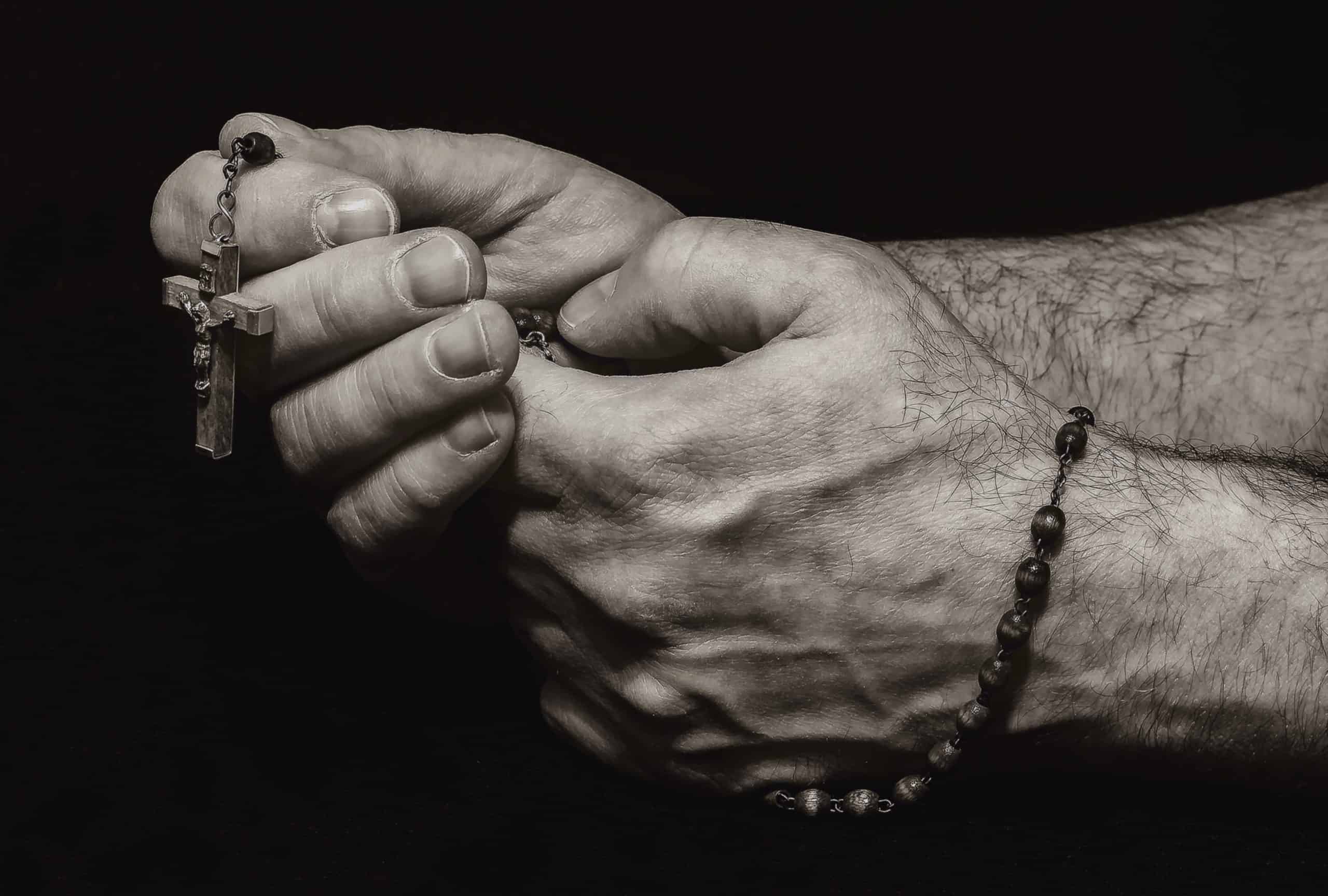The Unpardonable Sin, OCD, and Scrupulosity

In the realm of mental health, Obsessive-Compulsive Disorder (OCD) stands as a complex and diverse condition, often taking on unique and intricate forms. Among them, Scrupulosity emerges as a subtype deeply intertwined with religious or moral preoccupations.
This specialized manifestation delves into the spiritual realm, where individuals grapple with intrusive thoughts and fears surrounding the unpardonable sin, triggering an intricate web of anxiety, guilt, and religious obsessions.
In this exploration of The Unpardonable Sin, OCD, and Scrupulosity, we embark on a journey to comprehend the intricacies of this mental health phenomenon. The intersection of faith and mental health is a delicate yet profound landscape that shapes the experiences of those afflicted by Scrupulosity, leaving them burdened by the relentless quest for spiritual purity and moral righteousness.
As we delve into the nuances of Unpardonable Sin OCD and Scrupulosity, we seek to foster understanding and compassion. The convergence of spiritual beliefs and mental health struggles is a unique challenge, and it demands a sensitive and informed approach. By shedding light on the nature of intrusive thoughts and their impact on personal faith, we aim to offer hope and solace to those caught in the throes of religious obsessions.
With an emphasis on evidence-based therapies and a holistic view of well-being, we envision a pathway towards healing and reconciliation for individuals grappling with Scrupulosity. Our pursuit is guided by a commitment to destigmatize mental health struggles within the context of faith, paving the way for an inclusive and supportive environment where individuals can seek help without fear or hesitation.
What are you waiting for? – Download Your FREE OCD Worksheets Now!

Ready to reclaim your life, one fearless step at a time? Your personalized path to anxiety-free living starts now!
Unlock your extraordinary future with PanicAway!
Don’t let anxiety define your story. Choose PanicAway, and step into a world bursting with limitless opportunities and unshakable self-assurance. Your personalized path to an extraordinary life is right here!
Meet PanicAway: Your Personal Roadmap to Liberation from Anxiety
Tired of letting anxiety steal the best moments of your life? It’s time to take charge and embrace a world filled with possibilities, free from fear and panic.
Why PanicAway is Your Perfect Ally in this Journey:
- Immediate Relief: Imagine those sleepless nights and crippling panic attacks becoming distant memories. PanicAway arms you with techniques for instant anxiety relief, putting you back in control.
- Empowerment from Within: It’s not about just managing anxiety; it’s about conquering it at its core. Rediscover your inner strength and emerge as a fearless, empowered version of yourself.
- Reclaim Your Freedom: Visualize a life where anxiety no longer dictates your choices. With PanicAway, you’ll savor the freedom to chase your dreams, explore the world, and seize every opportunity with unwavering confidence.
- Proven Success Stories: Join the community of individuals who’ve transformed their lives with PanicAway. You can be the next success story, and we can’t wait to celebrate your triumph!
- Comprehensive Support: You gain access to a treasure trove of resources, from life-changing e-books to enlightening audio guides. Plus, connect with kindred spirits on their own journeys to overcome anxiety.
What is “Unpardonable Sin OCD?”
“Unpardonable Sin OCD,” also known as “Blasphemy OCD,” is a specific subtype of Scrupulosity OCD. It involves obsessive fears and anxieties related to committing the “unpardonable sin” or blaspheming against one’s religious beliefs or deity. This particular form of OCD centers around concerns of irreparably offending or disrespecting one’s religious figure, sacred texts, or religious practices.
Individuals experiencing Unpardonable Sin OCD might be haunted by intrusive and distressing thoughts, which they interpret as blasphemy or thoughts that go against their faith. They may believe that such thoughts make them irredeemably sinful or condemned, leading to overwhelming guilt, fear, and anxiety.
Common characteristics of Unpardonable Sin OCD include:
Intrusive Thoughts
Individuals experience intrusive and unwanted thoughts that they perceive as blasphemous or immoral. These thoughts can be distressing and create significant emotional turmoil.
Extreme Guilt and Shame
People with Unpardonable Sin OCD often feel intense guilt and shame over their perceived blasphemous thoughts. They may interpret these thoughts as a reflection of their character and worry about divine punishment.
Reassurance-Seeking
Those affected may frequently seek reassurance from religious figures, family members, or peers to alleviate their anxiety about committing the “unpardonable sin.”
Avoidance
Individuals may avoid religious settings, rituals, or objects, fearing that their presence might lead to blasphemous thoughts or actions.
Mental Rituals
Engaging in mental rituals, such as repeating prayers or mental attempts to “undo” blasphemous thoughts, is common in this form of OCD.
Unpardonable Sin OCD can be especially distressing, as it preys on a person’s deepest religious convictions and fears. However, it is essential to recognize that these obsessions are a product of OCD and not reflective of a person’s true beliefs or character.
What are you waiting for? – Download Your FREE OCD Worksheets Now!
Why Do I Have Evil Thoughts About God?

Experiencing evil or blasphemous thoughts about God in OCD is a common symptom of Scrupulosity OCD, a subtype of Obsessive-Compulsive Disorder (OCD) that involves intense and irrational fears related to religious or moral concerns. It’s important to understand that having these thoughts is not a reflection of your true character or beliefs but rather a manifestation of the disorder.
There are several reasons why individuals with Scrupulosity OCD experience such thoughts:
Intrusive Thoughts
OCD is characterized by intrusive and distressing thoughts that pop into the mind involuntarily. These thoughts are often unwanted and create significant anxiety.
Anxiety Amplification
Thoughts about God or religious figures are emotionally significant and carry moral weight. Anxiety about these thoughts can amplify their presence in your mind.
Cognitive Distortions
People with OCD often experience cognitive distortions, such as thought-action fusion. This leads them to believe that having a thought is morally equivalent to carrying out the action, causing intense guilt and fear.
Hyper-vigilance
Individuals with Scrupulosity OCD are hyper-vigilant about their thoughts and moral values, which can lead to increased focus on any perceived inappropriate or evil thoughts.
Reassurance-Seeking
Seeking reassurance from others or engaging in compulsive behaviors to alleviate anxiety can inadvertently reinforce the power of the intrusive thoughts.
Intrusive Thought Dominance
OCD can lead to a cognitive bias where intrusive thoughts become more salient and dominant in the mind. The more one tries to suppress or control these thoughts, the more they tend to persist.
Fear of Losing Control
People with Scrupulosity OCD may fear that these evil or blasphemous thoughts are a sign of losing control over their minds or beliefs, leading to heightened anxiety and distress.
Moral Responsibility
Those with Scrupulosity OCD may place an excessive burden of moral responsibility on themselves. As a result, they may feel more accountable for their thoughts and perceive any unwanted or negative thoughts as morally significant.
Cultural and Religious Influence
Cultural and religious upbringing can play a role in the content of intrusive thoughts. Religious teachings and moral values can influence the specific nature of blasphemous or evil thoughts experienced by individuals with Scrupulosity OCD.
Fear of Punishment
People with Scrupulosity OCD may have an intense fear of divine punishment or retribution for having these thoughts. This fear reinforces the anxiety and the urge to engage in compulsive behaviors to seek reassurance or relief.
Cognitive Rigidity
OCD can lead to cognitive rigidity, making it difficult for individuals to accept uncertainty or ambiguity. They may excessively analyze their thoughts, trying to determine if they align with their religious beliefs, which can fuel anxiety and distress.
Sensitization
Frequent exposure to religious content or discussions about moral issues can sensitize individuals with Scrupulosity OCD to these themes, making them more susceptible to intrusive thoughts related to God or religious figures.
It is important to recognize that these reasons contribute to the nature of the thoughts experienced in Scrupulosity OCD but do not indicate any malevolence or genuine intent on the part of the individual.
Seeking professional help from a mental health expert experienced in treating OCD is vital to effectively manage these intrusive thoughts and associated distress.
Therapy can provide the necessary tools and support to challenge these thoughts and develop healthier coping strategies, ultimately leading to improved well-being and a more balanced spiritual journey.
Related Articles – OCD and IFS: A Complete Guide
Unpardonable Sin OCD and Scrupulosity

Unpardonable Sin OCD and Scrupulosity are two closely related concepts that fall under the broader category of Obsessive-Compulsive Disorder (OCD) with a specific focus on religious or moral concerns.
Scrupulosity
Scrupulosity is a subtype of OCD characterized by obsessive fears and compulsive behaviors related to religious or moral themes. People with Scrupulosity experience distressing and intrusive thoughts about committing sins, violating moral principles, or failing to meet their religious standards.
They may excessively worry about their actions and intentions, interpreting minor mistakes as serious moral wrongdoings. Compulsions in Scrupulosity often involve seeking reassurance, excessive praying, confessing perceived sins, or engaging in rituals to alleviate anxiety and guilt.
Unpardonable Sin OCD (Blasphemy OCD)
Unpardonable Sin OCD is a specific manifestation of Scrupulosity that centers around the fear of committing the “unpardonable sin” or blaspheming against one’s religious beliefs or God. Individuals with this subtype of OCD may experience intrusive and distressing thoughts that they interpret as blasphemous, evil, or morally offensive.
These thoughts can be about religious figures, sacred texts, or rituals, and are often unwanted and cause significant distress. People with Unpardonable Sin OCD may worry that these thoughts make them irredeemably sinful or condemned, leading to intense guilt, fear, and anxiety.
The key features of both Unpardonable Sin OCD and Scrupulosity include:
- Intrusive Thoughts: Both conditions involve unwanted and distressing thoughts that are difficult to control or suppress.
- Moral and Religious Themes: The thoughts revolve around religious or moral concerns, such as sins, moral failings, or blasphemy.
- Anxiety and Distress: These thoughts lead to significant anxiety and emotional distress due to their perceived moral significance.
- Compulsive Behaviors: Individuals may engage in rituals or compulsive behaviors in an attempt to reduce their anxiety and seek reassurance.
It’s important to understand that both Unpardonable Sin OCD and Scrupulosity are treatable conditions. Therapy, such as Cognitive-Behavioral Therapy (CBT) and Exposure and Response Prevention (ERP), is often effective in helping individuals manage their obsessive thoughts and compulsive behaviors.
Through therapy, individuals can develop healthier coping strategies and learn to challenge their irrational beliefs and fears, leading to improved well-being and a more balanced relationship with their religious or moral values.
Seeking help from a mental health professional experienced in treating OCD and Scrupulosity is crucial for accurate diagnosis and tailored treatment.
Related Articles – What is Tourettic OCD?
How Do You Treat Unpardonable Sin OCD?

The treatment for Unpardonable Sin OCD, also known as Blasphemy OCD, typically involves a combination of cognitive-behavioral therapies and, in some cases, medication.
Here are the main components of the treatment:
Cognitive-Behavioral Therapy (CBT)
CBT is considered the first-line treatment for OCD, including Unpardonable Sin OCD.
In CBT, individuals work with a trained therapist to identify and challenge irrational thoughts and beliefs related to their fears of committing the unpardonable sin or blaspheming against their religious beliefs.
The therapist helps them develop healthier ways of thinking and coping with their anxiety.
Exposure and Response Prevention (ERP)
ERP is a specialized form of CBT that focuses on gradually exposing individuals to situations or triggers that provoke their intrusive thoughts about blasphemous or evil acts. During exposure, individuals resist the urge to perform the compulsive behaviors or rituals that would typically follow these thoughts.
Over time, this helps reduce the anxiety associated with the thoughts and weakens the link between the thoughts and the need to engage in compulsions.
Mindfulness Techniques
Mindfulness practices can help individuals with Unpardonable Sin OCD observe their thoughts without judgment and learn to accept uncertainty. By cultivating mindfulness, they can reduce the emotional intensity attached to their intrusive thoughts and gain better control over their reactions.
Medication
In some cases, medication may be prescribed to help manage the symptoms of Unpardonable Sin OCD. Selective serotonin reuptake inhibitors (SSRIs), which are commonly used to treat OCD, can help reduce the severity of obsessions and compulsions.
Religious Sensitivity
Given the nature of Unpardonable Sin OCD, it’s crucial to approach treatment with religious sensitivity. Therapists should respect the individual’s religious beliefs and not challenge the authenticity of their faith. Instead, the focus is on addressing the distress caused by OCD while honoring the individual’s spirituality.
Support and Education
Incorporating family members or religious leaders into the treatment process can provide a supportive environment and promote understanding of the condition. Educating them about Unpardonable Sin OCD can help reduce unintentional enabling behaviors and foster empathy.
It’s important to remember that successful treatment for Unpardonable Sin OCD requires patience and persistence. With consistent effort and support from a qualified mental health professional, individuals can gain better control over their intrusive thoughts, reduce the distress caused by OCD, and regain a sense of balance in their spiritual journey.
Related Articles – Can Art Therapy Help OCD?

Ready to reclaim your life, one fearless step at a time? Your personalized path to anxiety-free living starts now!
Unlock your extraordinary future with PanicAway!
Don’t let anxiety define your story. Choose PanicAway, and step into a world bursting with limitless opportunities and unshakable self-assurance. Your personalized path to an extraordinary life is right here!
Meet PanicAway: Your Personal Roadmap to Liberation from Anxiety
Tired of letting anxiety steal the best moments of your life? It’s time to take charge and embrace a world filled with possibilities, free from fear and panic.
Why PanicAway is Your Perfect Ally in this Journey:
- Immediate Relief: Imagine those sleepless nights and crippling panic attacks becoming distant memories. PanicAway arms you with techniques for instant anxiety relief, putting you back in control.
- Empowerment from Within: It’s not about just managing anxiety; it’s about conquering it at its core. Rediscover your inner strength and emerge as a fearless, empowered version of yourself.
- Reclaim Your Freedom: Visualize a life where anxiety no longer dictates your choices. With PanicAway, you’ll savor the freedom to chase your dreams, explore the world, and seize every opportunity with unwavering confidence.
- Proven Success Stories: Join the community of individuals who’ve transformed their lives with PanicAway. You can be the next success story, and we can’t wait to celebrate your triumph!
- Comprehensive Support: You gain access to a treasure trove of resources, from life-changing e-books to enlightening audio guides. Plus, connect with kindred spirits on their own journeys to overcome anxiety.
Final thoughts on The Unpardonable Sin, OCD, and Scrupulosity
The Unpardonable Sin, OCD, and Scrupulosity stand as a profound exploration of the intersection between faith and mental health, shedding light on the complex interplay between spirituality and obsessive-compulsive phenomena. Throughout this journey, we have delved into the intricacies of Scrupulosity, uncovering the distressing nature of religious obsessions and the relentless quest for spiritual purity.
Understanding that Scrupulosity is a specific manifestation of OCD, we have recognized that intrusive thoughts about committing the unpardonable sin or blaspheming against one’s religious beliefs do not define a person’s true character or faith. Instead, they reflect the tormenting grip of a treatable mental health condition that requires empathy, sensitivity, and evidence-based therapies for healing.
By embracing compassion and knowledge, we have sought to create an environment of understanding and support for individuals grappling with Unpardonable Sin OCD and Scrupulosity. We recognize the importance of religious sensitivity in therapy, fostering a safe space for individuals to explore their beliefs while addressing the distress caused by their intrusive thoughts.
As we conclude this exploration of The Unpardonable Sin, OCD, and Scrupulosity, we extend a message of hope to those navigating this intricate landscape. With empathy, knowledge, and resilience, we stand united in the pursuit of mental wellness within the sacred territory of faith. Together, we can cultivate a world where spirituality and mental health find harmony, ushering in a brighter future of healing and understanding.